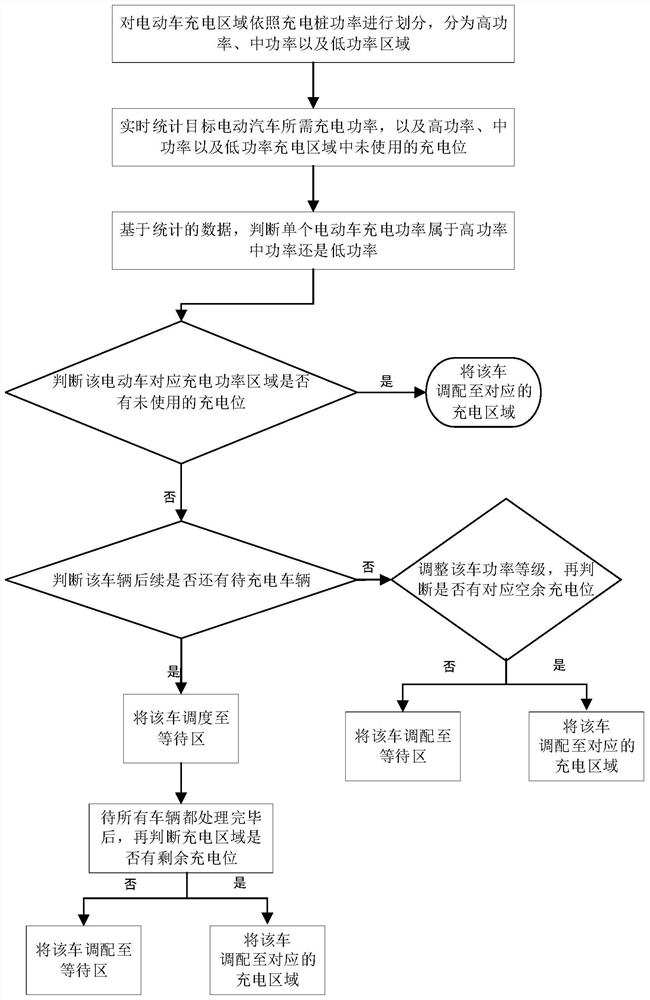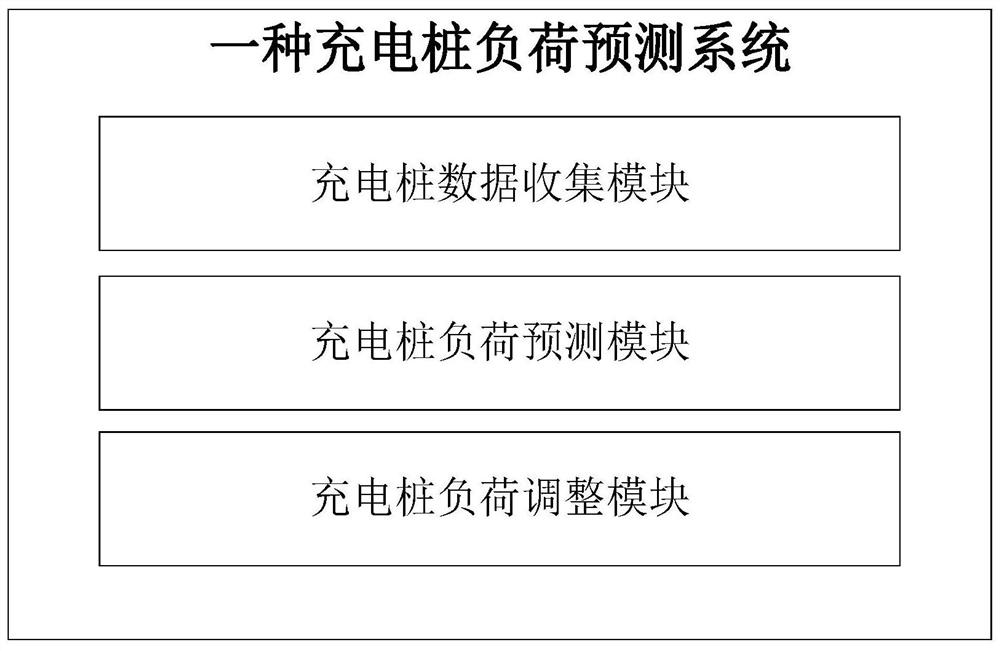Charging scheduling algorithm and charging pile power load prediction system
A scheduling algorithm and charging power technology, applied in forecasting, charging stations, electric vehicle charging technology, etc., can solve problems such as large impact on output data, achieve accurate results, and solve disorderly problems
- Summary
- Abstract
- Description
- Claims
- Application Information
AI Technical Summary
Problems solved by technology
Method used
Image
Examples
Embodiment 1
[0049] A charging scheduling algorithm, characterized in that:
[0050] (1) The electric vehicle charging area is divided into high-power, medium-power and low-power areas according to the power of the charging pile;
[0051] (2) Real-time statistics of the charging power w required by the electric vehicle to be charged 1 , and the unused charging bits in the high-power, medium-power, and low-power charging areas, expressed as {m 1 ,m 2 ,m 3 };
[0052] (3) Based on statistical data, determine the charging power w of a single electric vehicle 1 Whether it is high power, medium power or low power;
[0053] (4) If there is an unused charging position in the corresponding charging power area of the electric vehicle, allocate it to the corresponding area, and if there is no charging position in the corresponding power area, allocate it to the waiting area.
[0054] Due to the different maximum charging power required by various types of electric vehicles at present, in ord...
Embodiment 2
[0057] In this embodiment, as a further improvement of the technical solution of Embodiment 1, the charging area division standard is:
[0058] (2) When w 1 When <100kw, it is regarded as low power;
[0059] (2) When 1001 When <250kw, it is regarded as medium power;
[0060] (3) When w 1 >250kw, it is considered as high power.
[0061] At present, the charging power of AC charging piles is 7kw, and the charging power of DC charging piles is 30kw to 350kw. Therefore, this scheme divides the type of charging area based on this to meet the charging power requirements of different electric vehicles, and also prevent the charging power from being higher than that of electric vehicles. Power damages electric vehicle batteries.
Embodiment 3
[0063] In this embodiment, as a further improvement of the technical solution of Embodiment 2, the charging position allocation ratio of the low-power, medium-power and high-power charging piles is: 2:3:5.
[0064] Since most of the current electric vehicles are medium-power and high-power charging vehicles, and the future development trend of electric vehicles is to achieve high-power fast charging, this scheme sets the charging position allocation ratio of low-power, medium-power and high-power charging piles. It is: 2:3:5, which further meets the needs of charging users.
PUM
 Login to View More
Login to View More Abstract
Description
Claims
Application Information
 Login to View More
Login to View More - R&D
- Intellectual Property
- Life Sciences
- Materials
- Tech Scout
- Unparalleled Data Quality
- Higher Quality Content
- 60% Fewer Hallucinations
Browse by: Latest US Patents, China's latest patents, Technical Efficacy Thesaurus, Application Domain, Technology Topic, Popular Technical Reports.
© 2025 PatSnap. All rights reserved.Legal|Privacy policy|Modern Slavery Act Transparency Statement|Sitemap|About US| Contact US: help@patsnap.com



